In this era of planetary challenges, it should come as no surprise that the answers we require to address some of these challenges need to be new answers. They need to change.
Global Public Investment
Historical and Political Geographer
- The post-war aid framework is outdated and too top-down to tackle border-spanning crises like climate change and pandemics.
- Global Public Investment offers a universal, rule-sharing model where every country contributes according to capacity and gains an equal voice in decisions.
- Financing should rely on robust sources such as environmental levies and national budget lines, rather than the seldom-met 0.7% target.
- International support must move from a charity narrative to one of mutual interest, recognizing shared responsibility for global public goods.
Planetary challenges
The world today is overburdened with challenges that supersede the boundaries of nation states, and therefore of national governments, to address on their own. These are global challenges such as climate change; there are challenges such as we have recently witnessed in the COVID-19 pandemic, the challenges of international social protection and the need for social development across the globe.
 © Shutterstock
© Shutterstock
Outdated aid system
One of our challenges is that, in addressing and certainly in financing international collaborative agendas, we really only have a very outdated system of international aid or development, as we often refer to it, which harks back to the immediate post-Second World War period and the establishment of institutions such as the World Bank. They were designed to oversee and finance what were often also a series of bilateral transfers from wealthier countries to, as was referred to at the time, underdeveloped countries or poorer countries. This system of donors at one end and recipients at another is a very top-down system;
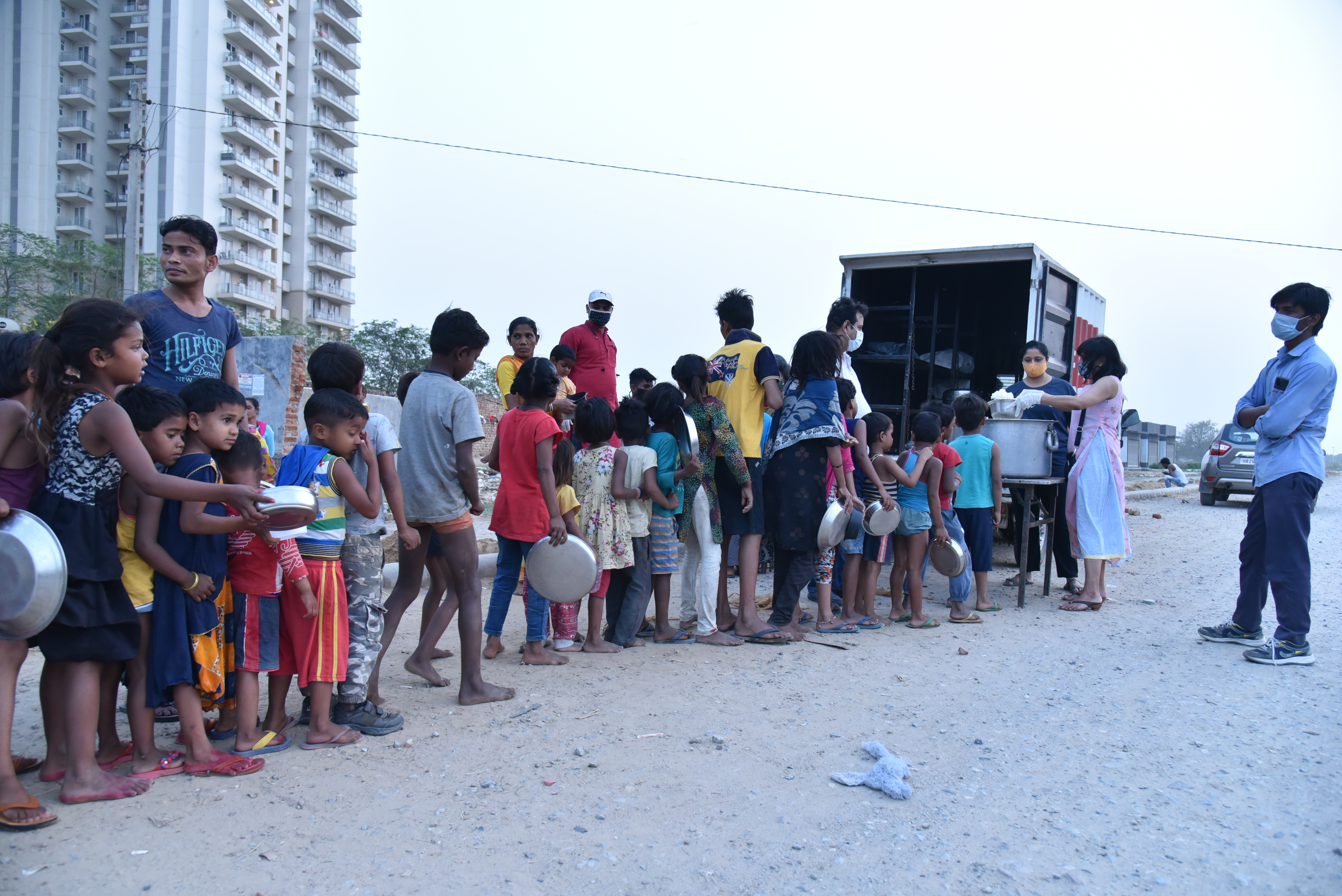 Free food distribution outside New Delhi © Shutterstock
Free food distribution outside New Delhi © Shutterstock
it is one in which only a few countries really get to contribute or to set the terms of the discussion and, therefore, it is one that, in a world of global challenges, where the implications, the consequences, of something like climate change playing out differently as they do around the world, really requires all countries to come together and make those decisions. The problem is that, even with the best will in the world, national governments do not have the institutional frameworks, let alone the ability, collectively and equitably, to finance the solutions that we require. This is why one of the things that I have been working on for many years is efforts to rethink and redesign international public finance, so that we can go from an old, outdated system of what was called Overseas Development Assistance, or ODA, to a more modern and universal system of international transfers of money between countries called Global Public Investment, or GPI.
Need for new cooperation
Any form of international solution to the challenges we confront today has to be based upon countries, first and foremost, coming together to agree on the responses that are required and to agree on how they will finance that response. That presupposes that they are willing and able to cooperate.
This brings in as well one of the fundamental questions that scholars have been confronting for many years, which is how we get countries, actors, to cooperate. One of the problems is that all countries or actors have different preferences and they have different needs. We need to find ways of ensuring or enabling what we refer to sometimes as collective action.
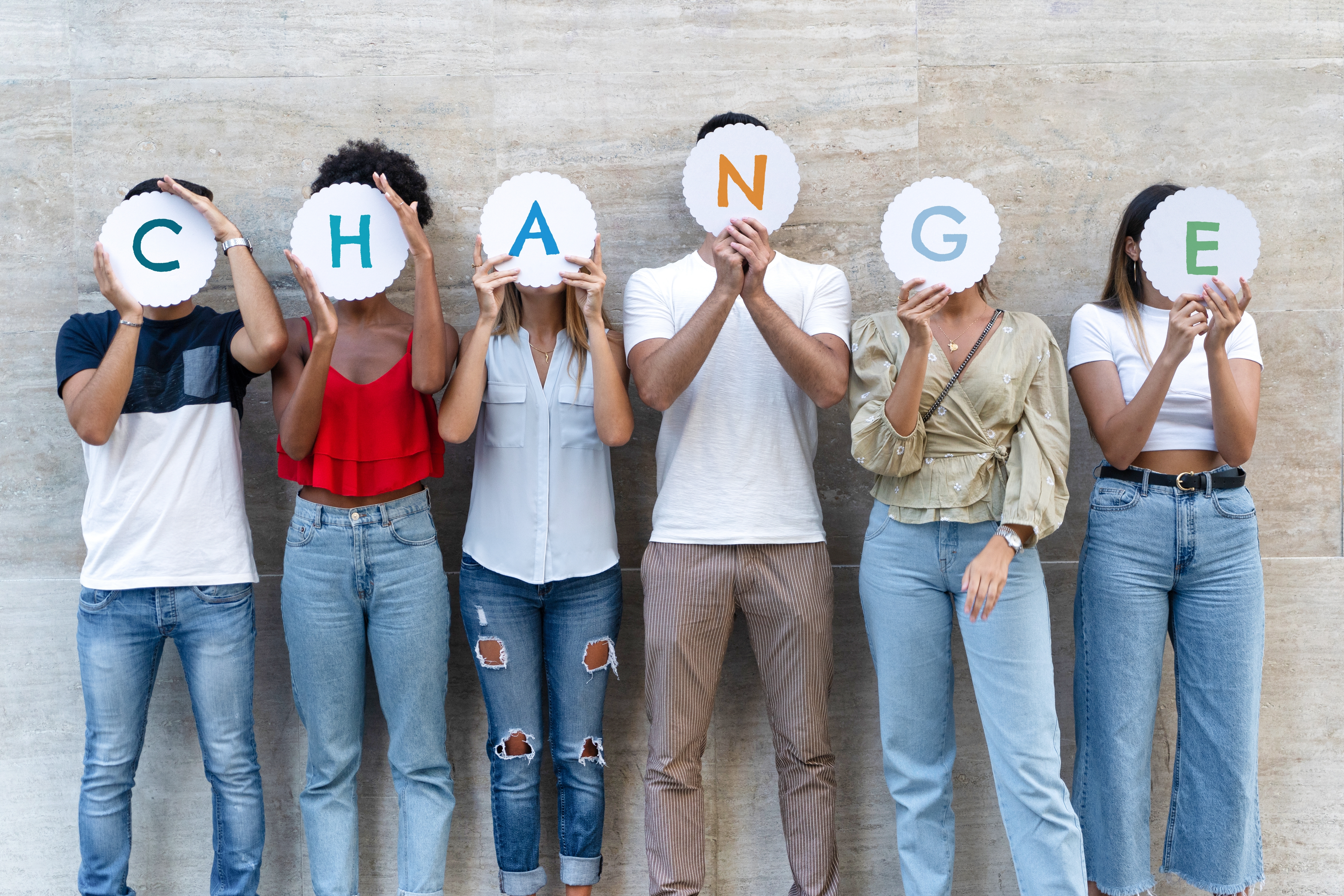 © Shutterstock
© Shutterstock
Collective action is when we agree to put aside our immediate or our short-term needs, desires, personal preferences, in favor of a greater good — something that might be further down the road or that may take longer to be established, or even that may be to the benefit of somebody else more than it is to the benefit of us. Finding those cooperative terms in the modern world is incredibly difficult. It is difficult because countries come from very different starting points — some are very poor; some are very wealthy — and it is also difficult because the nature of the challenges we confront today is itself more diffuse, more complex, both scientifically and politically, and more immune to the sorts of solutions that we have been able to devise as international society thus far. We are fundamentally reliant upon thinking of new ways of bringing countries together where they can agree to put aside their differences and collectively come to better decisions and more effective policies to address the challenges that we are confronting today.
Global Public Investment
These problems of international cooperation are one reason why we need more than ODA or traditional aid. We need something like Global Public Investment as a common, universal and publicly oriented approach to financing the needs that we as global society and as individual countries confront today. The notion of the public is very important in this, because investing in outcomes that are to the benefit of some and not to all of society is a very quick way to reproducing the forms of inequality that have, in many ways, gotten us to the state of problems that we confront today. Global Public Investment is really an effort to remind ourselves that even at the global level we need to rediscover the lessons that national countries and societies discovered 100, 150 years ago, which was that collectively, as societies, we need to finance all of the needs –
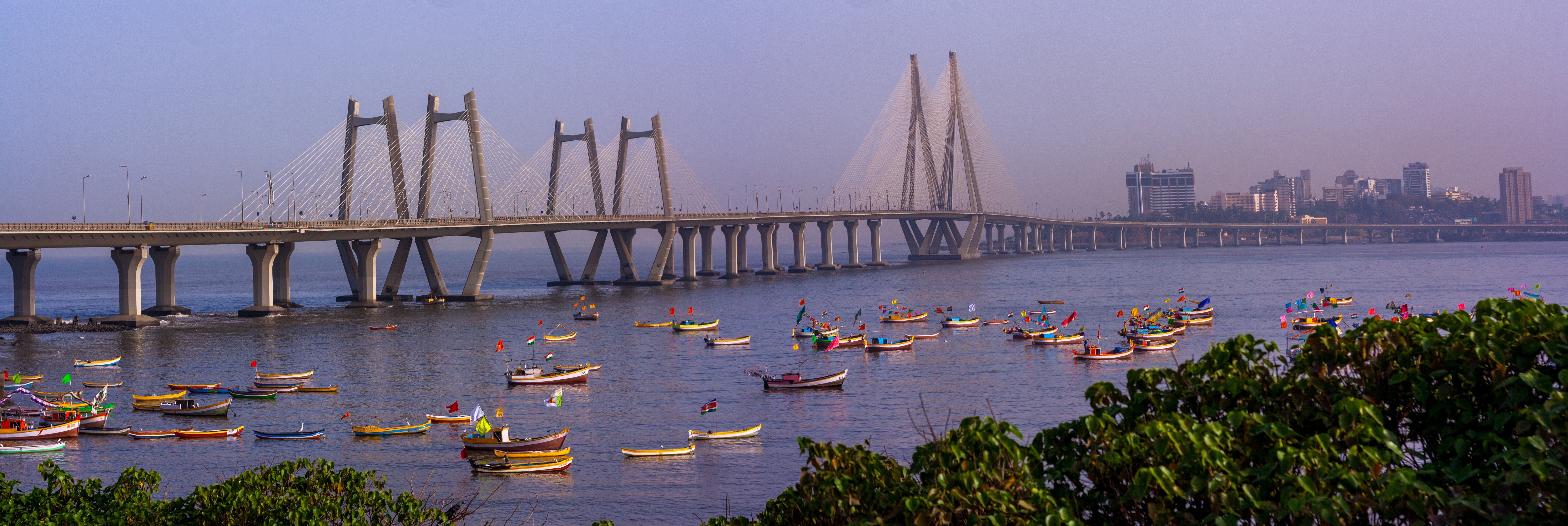 Bandra-Worli Sea Link, Mumbai, India © Snehal Jeevan Pailkar via Shutterstock
Bandra-Worli Sea Link, Mumbai, India © Snehal Jeevan Pailkar via Shutterstock
the public infrastructure, the public goods, the education systems, the welfare, the health – things that global society also needs to have financed, and in ways that are sufficiently equitable to relieve us of many of the other problems that we confront as global society, whether it is refugee crises, unmanaged migration or the consequences of climate change, which are reinforcing drought and food security crises in many places around the world. The world today is simply too integrated, just as national countries, economies and societies were 100, 150 years ago, for us any longer to pretend that financing those solutions through a very thin model of aid and charitable transfers is sufficient to what the planet and world society require today.
Inclusivity of GPI
International aid has been a hugely important part of how we, as a responsible society, fund and supply the essential needs of those who are the poorest on this planet; however, international aid cannot be a solution to the depth and range of problems and needs that the world confronts today. Some of these are obvious challenges that we see, such as climate change and pandemics, but others are also the need for development of infrastructure that connects countries as much as is within countries. There are things such as global public goods that all countries and all people require, but that which any one country alone is not able to supply.
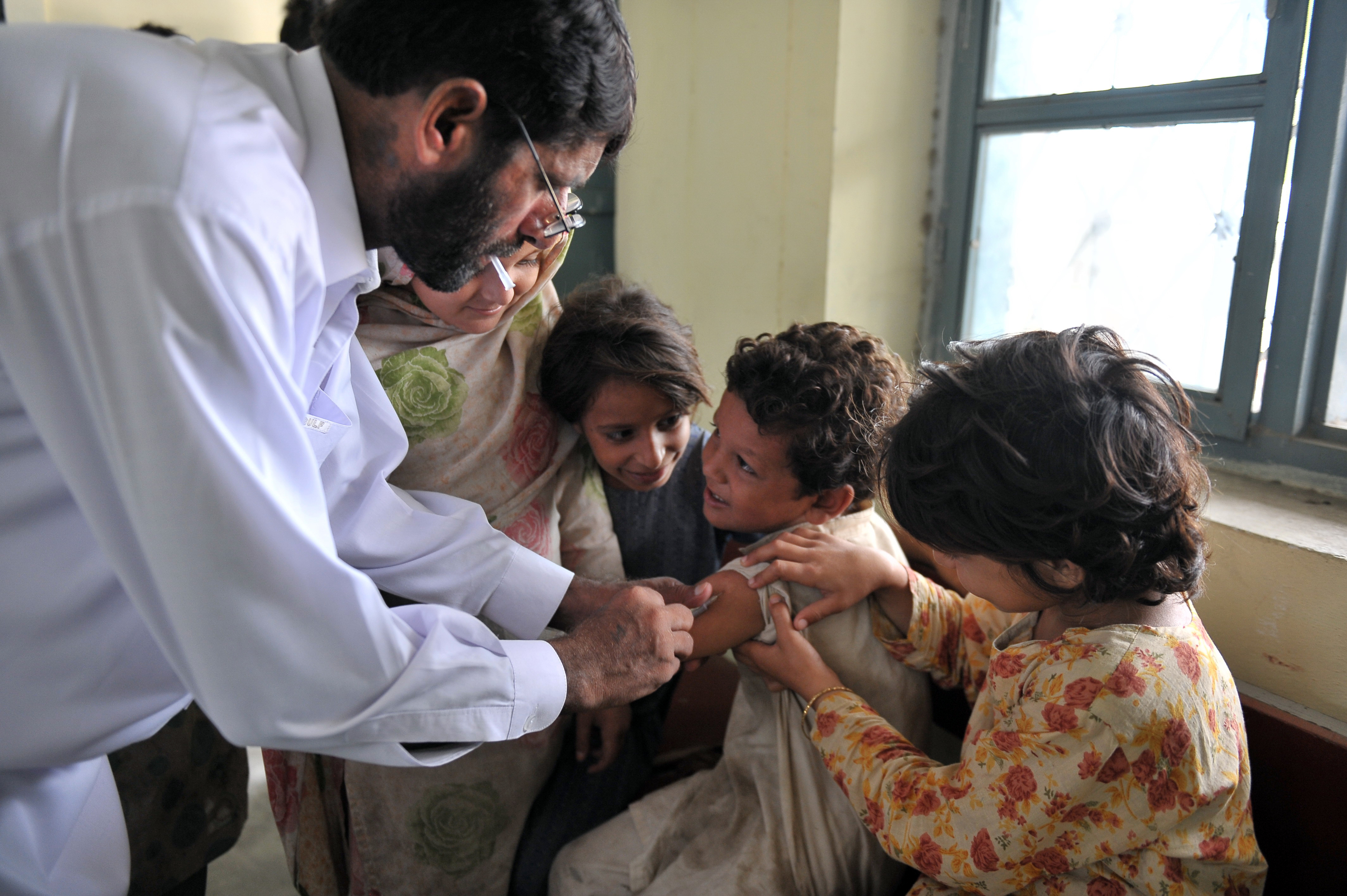 Children's hospital in Peshawar, Pakistan © Thomas Koch via Shutterstock
Children's hospital in Peshawar, Pakistan © Thomas Koch via Shutterstock
If we want to have a pandemic surveillance capacity to ensure that we do not experience another COVID-19, then we need to fund that, not just in one country, not just at home, but everywhere. That means that we need to help other countries also resource their part of bearing the burden of that particular challenge.
Equitable participation in GPI
The system of international aid, which has been hugely important, has also been a very narrow way of financing our global needs. It has focused on a few donor countries — often the G7 — a couple of dozen countries as donors to problems that all countries confront. There is never enough money, and there is never the right sort of money, either. There is not the money that goes to the places where it is really needed. Global Public Investment is a very different approach to financing our international needs. Contrary to a system where a few countries contribute and, in turn, set the rules, determine the governance and decide how problems will be solved, we have all countries contributing to the extent that they are able to, and also, because they are contributors, having a say in how those problems are managed and how the funds are used. While on one level a very simple change, this is transformative in how it opens up to addressing some of the collective action problems that we confront, whereby countries — be they Brazil, South Africa or other countries that have the capacity to contribute to international agendas — are reluctant to do so until they have a greater say in how the decisions are made.
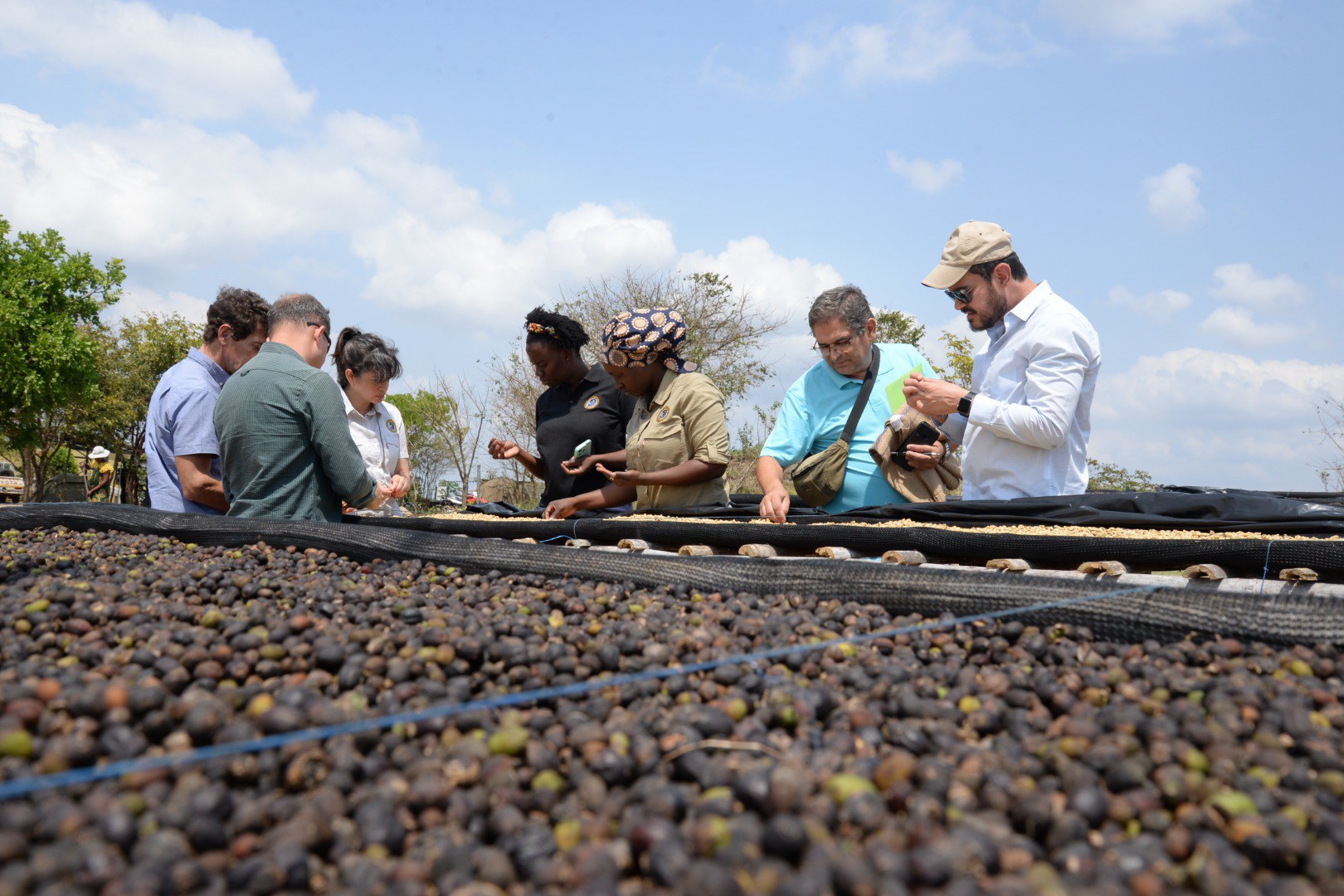 Tricafe Project © Agência Brasileira de Cooperação
Tricafe Project © Agência Brasileira de Cooperação
This is a fundamental step that international society needs to take now, very much in the same way as national societies took this same step 100, 150 years ago.
Funding mechanisms for GPI
One of the ways that international development aid has been organised to date is what is called the 0.7 commitment, which was a proposal that came out of the late 1960s whereby all rich countries would agree to contribute 0.7% of their national income each year to international aid money that would go to other countries and causes. The challenge with that model has been, first of all, that very few countries historically have ever made anything close to 0.7%. A few, such as Norway and Sweden — other Scandinavian societies — have sometimes exceeded 0.7%, but most countries have failed to meet the requirement.
We need to find other ways of raising money that are more robust, particularly in times when even the wealthiest countries are experiencing fiscal crises or economic recession. Global Public Investment could be funded in a number of different ways that are more appropriate to the objectives of our international agendas, such as addressing climate change, and you could do that, for example, through taxes on oil or through taxes on international shipping and trade — things that impact upon the environment.
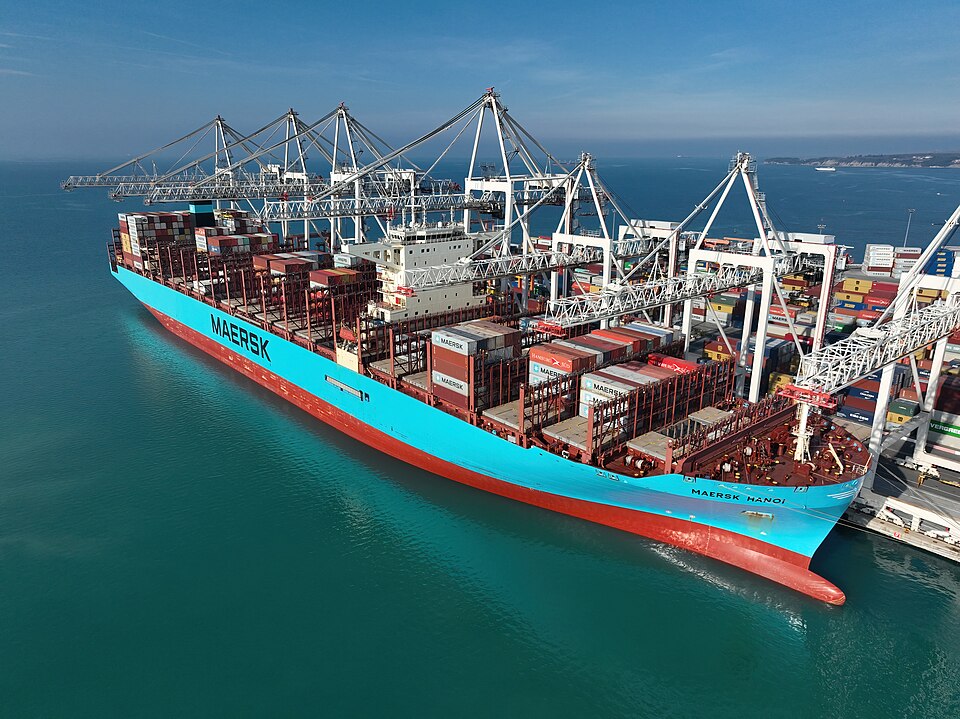 © Petar Milošević via Wikimedia
© Petar Milošević via Wikimedia
You could also do it by establishing dedicated budget lines within each country. Norway has recently considered whether, in addition to having a certain portion of its national income dedicated to poverty reduction in poor countries, it might also have a budget line dedicated to financing things that we often describe as global public goods — things such as clean air and climate mitigation measures, and things such as pandemic protection. These are all things that are becoming more and more important in the world today.
Public goods vs growth debate
For a long time in economics, the objective was, and in some cases remains, to try to increase economic growth — national economic growth, GDP, as we often measure it. More growth equated to more and better and happy and prosperous societies. One of the challenges we encountered towards the end of the 20th century was what happens when economic growth falls away. We then have the challenge of discontent, of rising expectations — people, societies that are used to a year-on-year growth in their assets, a year-on-year growth in their ability to enjoy the benefits of society, move to a situation where they feel resentment. We begin there to see the seeds of the current populist upheavals around the world. One of the alternatives presented today is the inverse of that — degrowth.
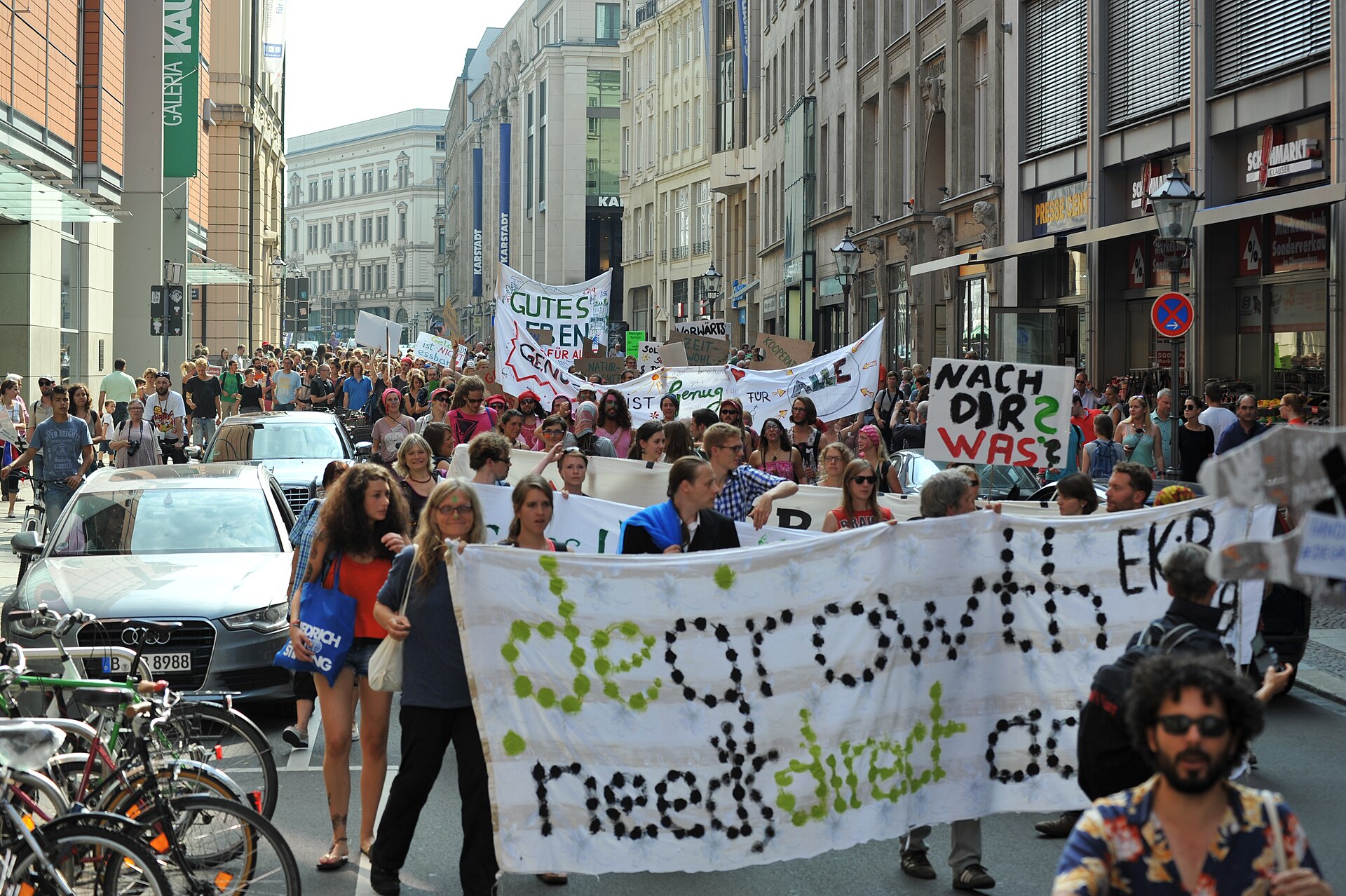 Degrowth demonstration in Leipzig © Danyonited via Wikimedia
Degrowth demonstration in Leipzig © Danyonited via Wikimedia
We need less growth. We need to go back to basics. We need to find ways to reduce our climate footprint. We need to find ways to wean ourselves off the old industrial approaches of the past. In some ways, that too confronts challenges, because we are and may be able to move to a more digital society, but digital societies also have their need for energy consumption — in many ways greater than before. Artificial intelligence seems to be an ethereal way of using knowledge and putting knowledge directly to the work of industrial development, but artificial intelligence is establishing a huge climate footprint in terms of the servers and the capacity of the infrastructure that is required. Global Public Investment and the focus I have in my work on global public goods, and public goods more broadly, is in many ways a middle path; it is an attempt to focus on doing things better — doing things in ways that realize natural efficiencies, because, for example, we trust one another.
Growth or degrowth are not the solution. What we need most of all are more equitable and effective public services and infrastructure that can make sure we make the best use of our available resources so that we are able, as a society, each of us, to maximise our potential contribution, at the same time as maximising our own potential enjoyment and benefit of the gains of all that we have achieved thus far.
Launching GPI
Something like Global Public Investment, GPI, often feels like something that might be nice to have in the future. It is not where we are today. In fact, there are many examples, when you look around the world, of organizations that are already organized in ways that look a little bit, if not in some cases quite a lot, like GPI. There are international funds that are organized in ways that ensure rich countries and poor countries alike have equal decision-making. There are examples of how governments are coming together to collectively address what scholars once derided as the problem of fiscal sovereignty — this unresolvable problem that all governments confront, which is that they will not allow other governments to have any say over how they distribute and spend their own resources. Throughout history, however, governments have been able to share decision-making over shared natural resources — through river basins, through common ownership of natural areas.
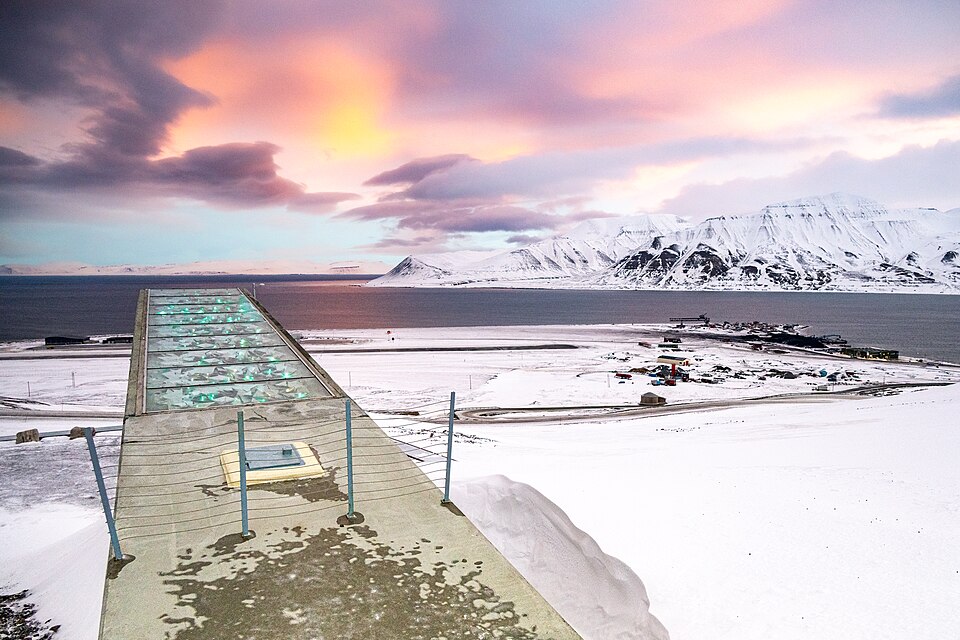 Svalbard Global Seed Vault © Michael Major for Crop Trust
Svalbard Global Seed Vault © Michael Major for Crop Trust
The idea that Global Public Investment is only something of the future is not something that we need to worry about. What we do need to worry about is finding ways to bring governments together to make concrete commitments to instituting the governance rules and legal structures that will underpin something like Global Public Investment. That means they need to commit to — in the case of the wealthiest countries, which have the largest vote shares in some of the international financial organizations — reducing those vote shares so that other countries are able to come in. It means that countries that do not currently contribute — what the literature sometimes refers to as free-riding countries, and there are many countries that fit in that category — need to come forward and begin to contribute so that the burden of financing our common agendas and common challenges is spread across all countries in the world. It is only when we do that that we will begin, finally, to turn the tide on something such as climate change and be prepared for something like the next pandemic.
Misconception about international aid
If there was one misconception about international aid that I would change, it is the idea embedded in the very term international aid — the idea that it is charity.
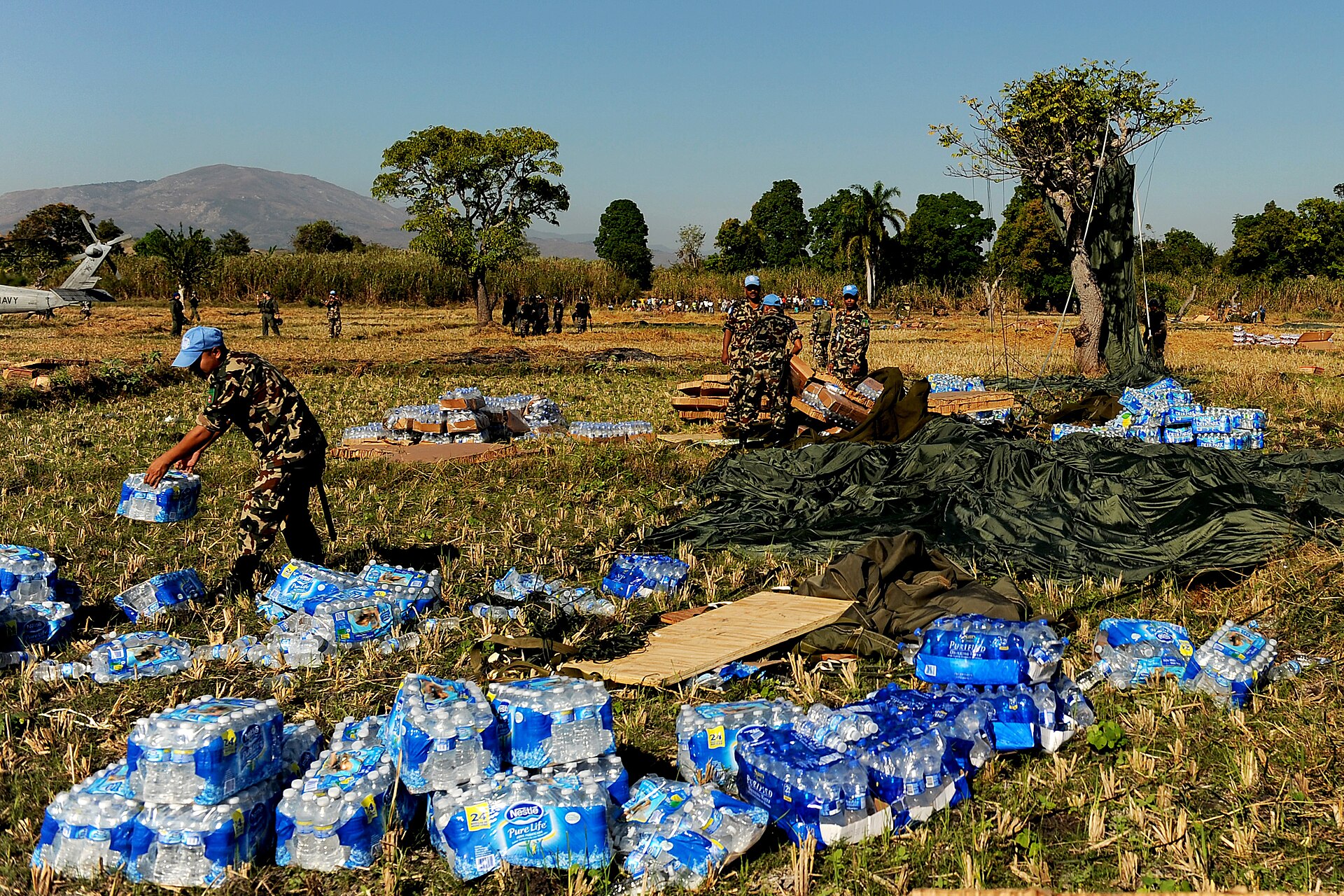 Aid airdrop over Haiti © Tech. Sgt. James L. Harper, Jr., USAF
Aid airdrop over Haiti © Tech. Sgt. James L. Harper, Jr., USAF
International cooperation between countries ultimately cannot be based on charity, just as welfare systems within countries are not based on charity; they are based on common sense and mutual interest. We all pay in because we recognize that, in different ways, all of us require different public services, and there is only one way to fund those. The one conception I would change about international aid is that it really ought to be called international cooperation. I think that Global Public Investment offers us the best chance of finding a vehicle for pursuing, enabling and perhaps even one day maximizing the ways in which countries are able to cooperate internationally to meet the needs of all people.
Editor’s note: This article has been faithfully transcribed from the original interview filmed with the author, and carefully edited and proofread. Edit date: 2025
Discover more about
global public investment
Reid-Henry, S. (2016). The Political Origins of Inequality: Why a more equal world is better for us all. University of Chicago Press.
Reid-Henry, S. (2019). Global Public Investment: Redesigning international public finance for social cohesion—A preliminary sketch. Revue d’économie du développement, 27(2), 169–201.
Reid-Henry, S. (2021). The legitimation crisis of the liberal international order.. In Fiori, J. Espada, F., Rigon,A., Taithe, B., & Zakaria, R. (Eds.), Amidst the debris: Humanitarianism and the end of liberal order. Hurst Publishers.
Reid-Henry, S. (2020). Inequality and democracy: A response to the International Panel on Social Progress (IPSP) report 2018. Review of Social Economy, 78(2), 185–202.